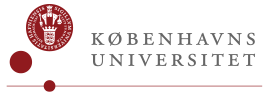The more we exercise, the longer we lounge around
27.9.2023 15:18:31 CEST | Københavns Universitet | Press release
The more we engage in structured exercise training, the more we tend to cut back on daily non-exercise physical activities like riding a bike to work instead of driving, or taking the stairs instead of hopping on an elevator. This is the conclusion reached from a meta-study from the University of Copenhagen. According to the study’s authors, this is an important consideration for anyone seeking to lose weight.

You may know the feeling. After a strenuous run or workout, you think you deserve an extra long rest on the couch, or an elevator ride instead of taking the stairs.
You are far from alone. A wide range of studies show that as people increase their amount of structured exercise, like going to the gym or running on the track, they tend to 'laze about' more when it comes to performing everyday physical activities that are not considered to be structured exercise.
"In 67% of the studies, we can see that people cut back on physical activities in their daily lives as compensation for more training. This includes walking less, cycling less and taking an elevator instead of the stairs," says Julie Marvel Mansfeldt, a graduate student at the University of Copenhagen’s Department of Nutrition, Exercise and Sports (NEXS).
Mansfeldt is the lead author of a systematic review of 24 research studies, all of which describe people’s levels of daily physical activities before and during interventions with various structured exercise programmes. The study is published in the journal Current Nutrition Reports.
One’s level of regular physical activity seems to play a significant role in whether or not a person successfully loses weight.
"Losing weight is about changing the balance between the amount of energy you consume and the amount you expend. You can either change your diet to eat less or increase your level of physical activity," says Julie Marvel Mansfeldt, who continues:
"In theory, an energy deficit resulting from exercising more should result in weight loss. But in practice, we see that the two things are seldom linked and that weight loss from exercise is often less than expected. This indicates that some kind of compensatory mechanism must exist. Surprisingly and contrary to what many people think, we do not typically increase the amount of food we eat upon starting exercise training. This then suggests that we must be decreasing non-exercise physical activity, which refers to all the physical activities we do in our daily lives aside from the structured exercise."
One of the studies concludes that this decline made subjects lose 22% less weight than expected from their exercise training program.
We think we deserve it
According to graduate student Julie Marvel Mansfeldt, our tendency to be less physically active outside of exercise time is probably a mixture of physiological and psychological mechanisms within us.
"The compensation can come from simply feeling more tired after a training session at the gym. But there is probably a psychological factor at play too, which is a kind of reward system that kicks in and makes us think we deserve to lie on the couch and skip the long walk with the dog, or take the car to the supermarket instead of cycling," Mansfeldt explains.
While many of us probably believe that we feel hungrier and eat more after engaging in structured sport or exercise activities, research in this area actually shows that this kind of compensation is not as common.
The studies also demonstrated that the compensatory reduction of non-exercise physical activities is a common response among both men and women, and both among people with a body weight within the healthy range and those with overweight.
The researchers hope that the new knowledge will be put into practice both by individuals and professionals:
"The number of overweight people is constantly growing. Therefore, it is important to look at what we can do to facilitate a net energy balance whereby the amount of energy a person consumes is no greater than the amount of energy they expend," says Julie Marvel Mansfeldt and continues:
"Currently, weight loss programmes involving exercise always state that participants need to be careful not to eat more. But because this second mechanism also appears to play an important role, I hope that it will be mentioned to anyone who begins an exercise-based weight loss programme in the future. That they should remember to be as active on a daily basis as usual, and be careful to not give up cycling to work, walking the dog, taking the stairs, and so on."
Julie Marvel Mansfeldt conducted the meta-study under the supervision of Professor Faidon Magkos from the Department of Nutrition, Exercise and Sports.
[BOX:] IF EXERCISE IS FUN, YOU'LL EAT LESS
The research also showed that people who had a “positive affect” (those who enjoyed exercising and exhibited positive moods such as joy, interest, and alertness) also ate less and therefore achieved greater weight loss than those who had a “negative affect” (those who thought exercise was hard and not very fun).
"This shows that the psychological aspect is important for whether or not you are successful with your training program, and further implies that you need to find the type of exercise that is right for you," says Julie Marvel Mansfeldt.
Keywords
Contacts
Julie Marvel Mansfeldt
Department of Nutrition, Exercise and Sports
University of Copenhagen
ntv628@alumni.ku.dk
+45 30 20 49 55
Maria Hornbek
Journalist
Faculty of Science
University of Copenhagen
maho@science.ku.dk
+45 22 95 42 83
Images
Links
ABOUT THE FACULTY OF SCIENCE
The Faculty of Science at the University of Copenhagen – or SCIENCE – is Denmark's largest science research and education institution.
The Faculty's most important task is to contribute to solving the major challenges facing the rapidly changing world with increased pressure on, among other things, natural resources and significant climate change, both nationally and globally.
Subscribe to releases from Københavns Universitet
Subscribe to all the latest releases from Københavns Universitet by registering your e-mail address below. You can unsubscribe at any time.
Latest releases from Københavns Universitet
Når krisen kradser, står Danmarks frivillige klar11.2.2026 13:25:56 CET | Pressemeddelelse
En del af befolkningen står parat til at træde til, når der er krise og andre har brug for hjælp. Disse mennesker udgør en slags civilt beredskab af frivillige, mener KU-forskere fra Sociologisk Institut. Men det er ikke nødvendigvis de samme frivillige, du kender fra foreningslivet.
Graviditet ændrer kvinders reaktioner på spædbørn9.2.2026 14:28:56 CET | Pressemeddelelse
Gravide kvinder reagerer mere positivt end ikke-gravide, når de præsenteres for lydoptagelser, videoer og billeder med spædbørn. Det tyder på, at en graviditet forbereder kvinder mentalt på at håndtere signaler fra spædbørn, viser et nyt studie fra Københavns Universitet og Psykiatrisk Center København.
Algoritmer afslører nye sider af det moderne gennembruds litteratur3.2.2026 13:16:47 CET | Pressemeddelelse
Forskere fra Københavns Universitet har digitaliseret 850 romaner fra det moderne gennembrud (1870-1900) og analyseret dem ved hjælp af algoritmer og AI. De kan nu vise, at perioden gemmer på en række oversete værker, der behandler temaer som køn og religion på overraskende måder.
Ny forskning: Styrket tidlig indsats giver markant færre ordblinde elever2.2.2026 09:50:41 CET | Pressemeddelelse
Et nyt undervisningsprogram målrettet elever i 1. klasse med øget risiko for ordblindhed har stor positiv effekt, viser en ny undersøgelse ved Center for Læseforskning på Københavns Universitet. I 3. klasse var andelen af ordblinde betragteligt lavere blandt de elever, der havde deltaget i det nye undervisningsprogram sammenlignet med eleverne i kontrolgruppen.
Vores tvivl på egne valg skyldes forskellige mekanismer30.1.2026 05:00:00 CET | Pressemeddelelse
Vi mennesker kan tvivle på os selv – også når vi præsterer bedre eller lige så godt som andre. Ny forskning viser, at tvivlen opstår på forskellig vis, blandt andet afhængigt af, om man er kvinde eller mand, og om man har tilbøjelighed til angst eller ej.
In our pressroom you can read all our latest releases, find our press contacts, images, documents and other relevant information about us.
Visit our pressroom

